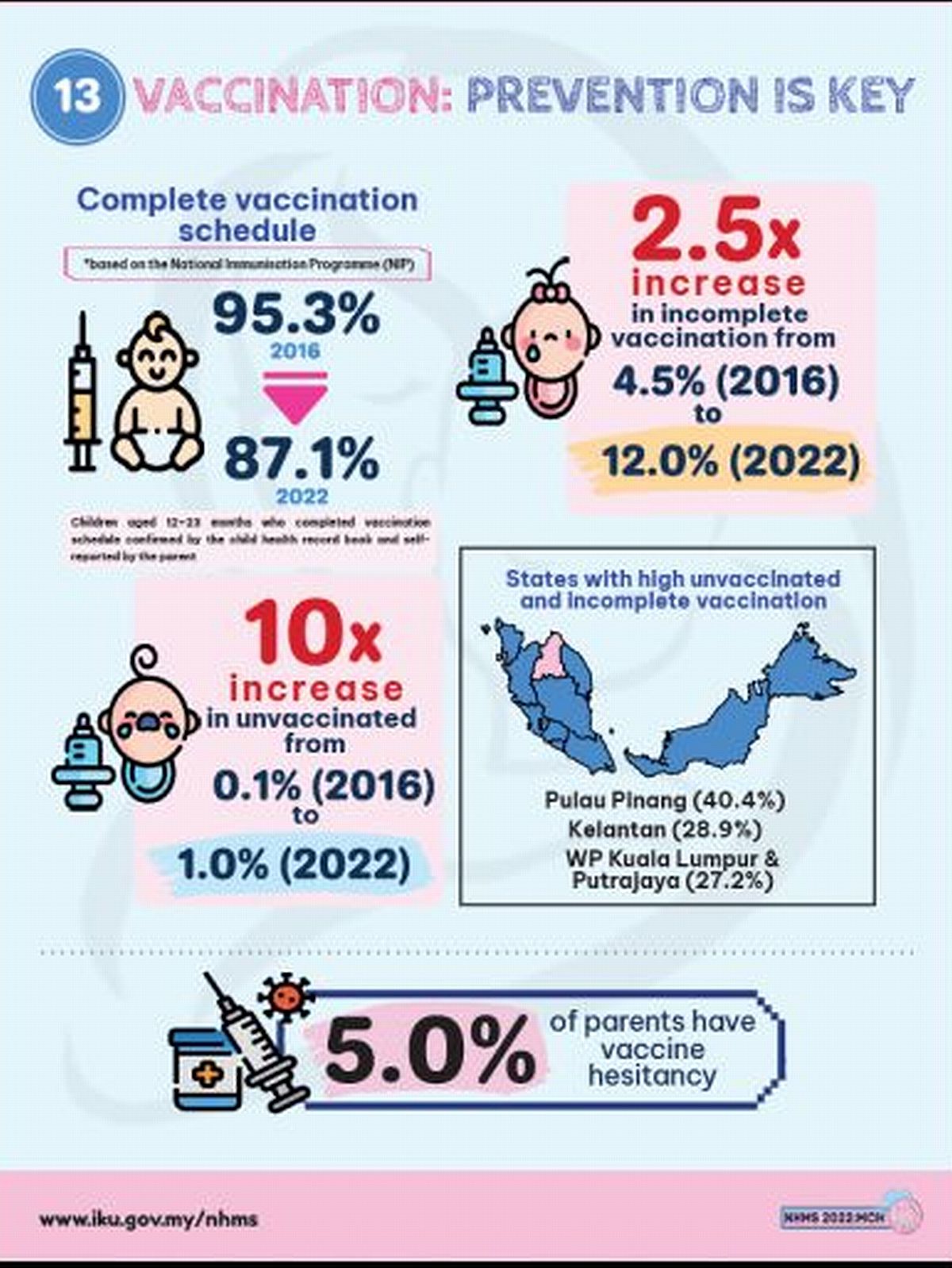KUALA LUMPUR, June 9 – The National Health and Morbidity Survey (NHMS) on Maternal and Child Health 2022 revealed a decline in the number of children who had completed their vaccination schedule last year as compared to six years ago in 2016.
The percentage of children aged 12 to 23 months who completed the vaccination schedule as confirmed by the child health record book and as self-reported by parents has plunged from 95.3 per cent in 2016 to 87.1 per cent in 2022.
Meanwhile, the percentage of children with incomplete vaccination has increased by about 2.5 times from 4.5 per cent in 2016 to 12 per cent in 2022.
The percentage of children who are unvaccinated has also shot up by 10 times from 0.1 per cent in 2016 to 1.0 per cent in 2022.
Under the National Immunisation Programme (NIP), children are given the BCG vaccine for protection against tuberculosis, Hepatitis B vaccine for protection against Hepatitis B, and a series of combination vaccines DTaP-IPV-Hep B-Hib that protect against diphtheria, tetanus, pertussis (whooping cough), poliomyelitis, Hepatitis B and Haemophilus Influenzae type B.
The BCG and Hepatitis B vaccines are given at birth while the DTaP-IPV-Hep B-Hib combination vaccines are given in three doses during the child’s second, third, and fifth months, followed by a booster dose at 18 months.
Additionally, the NIP includes the MMR vaccine that is given to children in their ninth and twelfth months for protection against measles, mumps, and rubella, as well as the PCV vaccine, given to children at four and six months-old to protect against pneumococcal disease. The PCV vaccine is followed by a booster shot at 15-months-old.
According to the NHMS 2022 survey, Penang is the state with the highest number of unvaccinated children and children with incomplete vaccinations at 40.4 per cent, followed by Kelantan at 28.9 per cent, and the Federal Territories of Kuala Lumpur and Putrajaya combined at 27. 2 per cent.
The survey, conducted by the Institute of Public Health (IKU) under the Health Ministry, also found that 5 per cent of parents have vaccine hesitancy.












